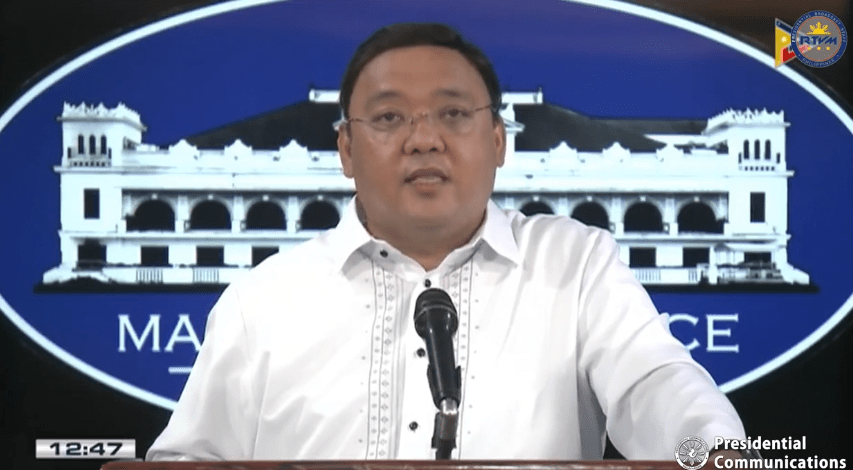
The Dengvaxia controversy is to blame for the country’s delayed procurement of Covid-19 vaccines, Malacañang said on Friday.
Roque said Pfizer, a European company like Sanofi, the manufacturer of the Dengvaxia vaccine, had become more careful in supplying vaccines to countries with only emergency use authorizations (EUA).
Pfizer is also demanding an indemnification law, Roque said.
The arrival of the first vaccine doses from the Covax facility—117,000 shots of Pfizer vaccines—was delayed by a week due to the lack of an indemnification law.
“Well, alam po ninyong talagang ang sinabi sa atin ng Covax facility ay darating iyong kanilang Pfizer eh dapat sa gitna na Pebrero; pero naantala nga po ito. Bakit? Tapatan na po ano… humihingi po sila noong tinatawag na indemnity agreement dahil ang kanilang bakuna naman ay covered ng EUA lang at hindi pa ng general use authorization,” Roque said in a PTV-4 interview.
“At gumalaw naman po ang ating pamahalaan, ang Kongreso ay bumubuo ng isang batas ngayon na nagsasabi na gobyerno na ang magbabayad ng danyos para sa lahat ng magkakaroon ng side effects dahil dito sa mga bakunang paparating at na-certified naman po ito kahapon as urgent ng ating presidente, kaya inaasahan nating magiging batas ito,” he added.
Under then-President Benigno Aquino III, the Philippine government in 2016 launched a dengue vaccination campaign using Sanofi Pasteur’s Dengvaxia vaccine.
About 830,000 public schoolers were given the vaccine.
The vaccination program was put to a halt in 2017 when Sanofi Pasteur said its vaccine could put previously uninfected people at a higher risk of severe dengue fever.
In November 2017, Sanofi said its analysis based on the six-years worth of clinical data “confirmed that Dengvaxia provides persistent protective benefit against dengue fever in those who had prior infection. For those not previously infected by dengue virus, however, the analysis found that in the longer term, more cases of severe disease could occur following vaccination upon a subsequent dengue infection.”
In 2018, the University of the Philippines-Philippine General Hospital conducted a probe into the deaths of 14 children with prior Dengvaxia vaccination. It found three deaths that could be causally associated with “immunization that is vaccine product-related,” and two of which “implicated vaccine failure.”
However, the Department of Health in 2019 said there was no proof that the deaths were directly caused by Dengvaxia. John Ezekiel J. Hirro